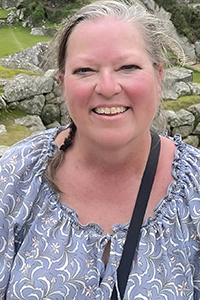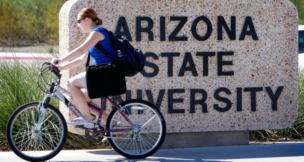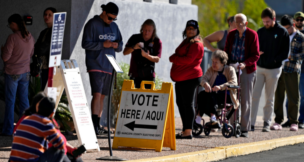Prioritize senior issues, including Medicare Advantage
Mechelle Morgan-Flowers//December 30, 2024//
Prioritize senior issues, including Medicare Advantage
Mechelle Morgan-Flowers//December 30, 2024//
By 2050, an estimated 26% of Arizonans will be aged 65 and older — a sharp rise from just 18% of our population today. Our growing older community signals that senior issues are not just a concern of the future but rather the priorities of today.
Following this election, our leaders must be prepared to address their challenges and pass policies that enhance their quality of life. Older residents are already grappling with how to make their savings last, maintain their health, and live comfortably after years of hard work. And many of these pressures are even higher for seniors in rural communities.

As a nurse on the Navajo Reservation, I frequently work with patients residing in rural, remote areas where health care can be sparse. Such inaccessibility is particularly dangerous for older residents, many of whom require consistent and reliable health services. Fortunately, programs like Medicare Advantage improve health care utilization and access for seniors.
Over the years, I’ve witnessed how Medicare Advantage plans act as a life-saving program for my patients. These plans offer telehealth services, prescription delivery, and transportation options, ensuring that beneficiaries who reside in even the most rural pockets of our state can access care.
The program also addresses the rising cost of living by capping out-of-pocket expenses and maintaining low monthly premiums. This crucial health program and its affordable premiums allow our seniors to access the care they need to maintain independence in ways that fit their individual needs.
Despite its importance for rural communities, Medicare Advantage has seen declining investment from Washington. The Centers for Medicare & Medicaid Services (CMS) have continued to scale back financial support for the program, cultivating uncertainty for seniors who rely on it. Many older adults are left wondering if the services they depend on will be available throughout their retirement.
As CMS rolls back funding, rural communities could be disproportionately affected – many rely on transportation, telehealth lines, and delivery options. And other affordable plans just don’t provide these valuable benefits.
With so much uncertainty around their care, seniors were looking for political candidates to take a stand. And since older residents constitute a significant voter bloc, newly-elected officials at all levels of government should recognize that protecting the population that sent them to office is critical. In the 2022 midterms, voters over the age of 50 accounted for 55% of all Arizona voters, and it appears that even more Arizonians over 50 turned out this year.
As Arizona’s senior population continues to grow, their concerns should be front and center in policy decisions. A practical place for candidates to start is by showing their support for Medicare Advantage and providing tangible plans to address the needs of senior care.
Seniors have built the foundation of our communities, and it’s only right that we ensure they have the resources they need to thrive in their later years.
The path forward must include robust support for Medicare Advantage, ensuring that Arizona’s seniors can retire with peace of mind. As we all move on from the election, now is the moment for officials to commit to protecting and expanding the programs that matter most to our aging population.
Mechelle Morgan-Flowers is a utilization review nurse on the Navajo Reservation.












































